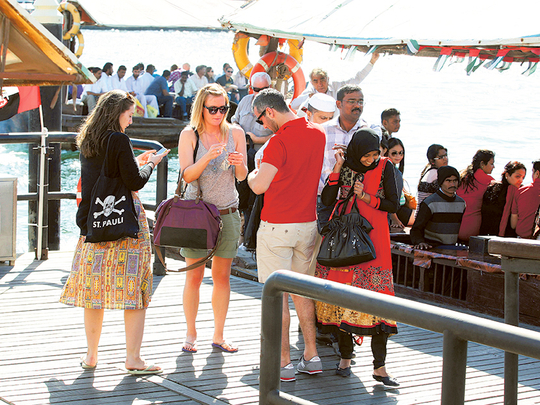
Abu Dhabi: The depreciation of the euro is likely to have an impact on the UAE’s tourism sector, especially at the lower end of the market as fewer Europeans are expected to fly out for holidays, analysts said.
However, a weaker euro is good news for UAE residents looking to spend their holidays in Europe, with UAE travellers expected to take longer holidays in countries like France, Germany, and Spain, among others.
Nikola Kosutic, research manager at research firm Euromonitor International, said that the depreciation of the euro has a global impact on many economies, and that the UAE’s tourism industry was no exception.
“The impact is not going to be negative in the sense that it will change the growth rate or anything, but it will definitely keep a certain number of people away from the UAE.
The exchange rate [between the euro and the US dollar] dropped 20-25 per cent over the last one year, which basically means that the purchasing power of European tourists has fallen by a quarter,” Kosutic told Gulf News in a phone interview.
He added that Europeans account for roughly a third of visitors to the UAE.
According to figures released by Abu Dhabi’s Tourism and Culture Authority last month, Germany is the emirate’s third largest source market, and the largest European market.
Euromonitor is currently in the process of revising its tourism forecasts that were prepared earlier as the falling euro is expected to have a significant impact on the UAE, Kosutic said.
The currency’s depreciation puts higher pressure on the UAE’s tourism industry to provide a wider range of affordable accommodation. Though the luxury segment of the market might not see an impact in demand from upper class Europeans, the mid-market segment is expected to see a drop in demand from its middle class clientele.
Meanwhile, travel agents also cited the euro as a reason behind the fall in inbound tourism from Europe.
Micky Bhatia, general manager at Al Futtaim Travel, said that currency fluctuations have played a significant role in reducing the number of European travellers to the UAE.
“I think the [UAE’s] hospitality sector will realise that they need to reduce their rates just like airlines have dropped their airfares. I feel like there will be a correction, which we are expecting, whereby hotels will be forced to reduce their rates,” he said.
However, a weaker euro also means that UAE travellers have stronger purchasing power in Europe. Bhatia said he expected to see stronger demand for travel to Europe during the summer months when many residents opt for holidays.
Similarly, Christopher Hewett, senior consultant at TRI Hospitality Consulting, said that a weaker euro might not necessarily result in a significant increase in travel, but is more likely going to lead to an increase in spending for UAE residents that do travel.
“Europe has always been a very popular destination for GCC travellers particularly during the summer months.
It could be a case where people see Europe as a bit more affordable because of the lower [euro] value, and therefore are able to spend a bit more on high-quality hotel rooms, shopping, and entertainment,” Hewett said.












